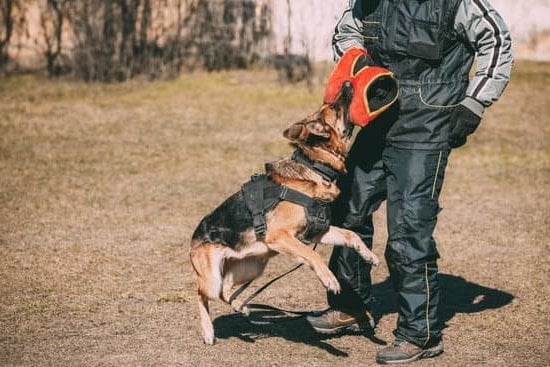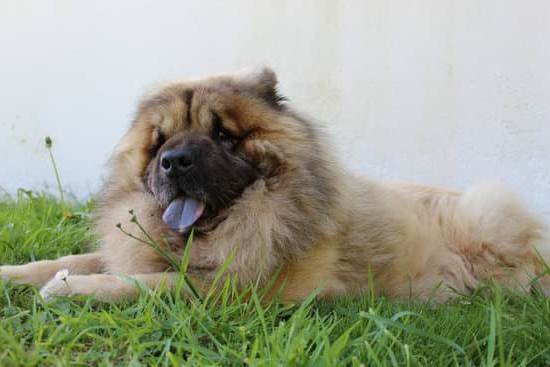How old should a dog be to train? This is a common question among new pet owners, and the answer is crucial to understanding the best practices for training a four-legged friend.
Training a dog from a young age is not only beneficial for their development but also for creating a strong bond between the dog and their owner. In this article, we will explore the importance of training a dog from a young age, how different developmental stages affect learning and training, and the best practices for potty training, teaching basic commands, socialization, and advanced training.
Training a puppy at the right age is essential for setting them up for success in adulthood. Just like children, dogs go through various developmental stages that play a significant role in their ability to learn and retain information. Understanding these stages and how they impact training can make all the difference in shaping a well-behaved and well-adjusted canine companion.
Potty training, teaching basic commands such as sit, stay, and come, socialization with other dogs and people are all crucial aspects of early training that need to be addressed at the right time. Additionally, advanced training such as teaching tricks and complex commands should also be approached with consideration for the dog’s age and developmental stage.
Throughout this article, we will delve into these topics to provide pet owners with valuable insights into when and how to train their furry friends for optimal results.
The Developmental Stages of a Dog
Early Puppyhood: 8-12 Weeks
During this stage, puppies are like sponges, soaking up everything around them. This is the ideal time to start basic training such as potty training and introducing them to simple commands like sit, stay, and come. Their brains are rapidly developing, making it easier for them to learn and retain information. However, it’s important to keep training sessions short and fun to prevent overwhelming the puppy.
Adolescence: 3-6 Months
As puppies enter adolescence, they may start testing boundaries and become more easily distracted. This is a crucial time to reinforce basic training and socialization skills. It’s also a good age to start more advanced obedience training, building on the foundation laid in early puppyhood. Consistency is key during this stage as they continue to develop mentally and physically.
Maturity: 1-2 Years
By the time a dog reaches maturity, they have typically mastered all of their basic obedience skills. This is the perfect age to introduce more complex commands, agility training, or even specialized tasks based on their breed or individual abilities. With a solid foundation established during their earlier developmental stages, dogs at this age are ready for more advanced training challenges.
Understanding how a dog’s developmental stages can impact their ability to learn and retain information is crucial when determining the best age to train them. Each stage presents different opportunities and challenges for training, but with patience and consistency, dogs of any age can learn new skills.
Potty Training
Potty training is an essential part of a dog’s early training and development. Here are some guidelines on when to start potty training your furry friend:
- Start potty training as soon as you bring your new puppy home. Puppies have limited control over their bladder and bowel movements, so it’s important to establish a routine right away.
- Typically, puppies can start learning to control their bathroom habits around 12 weeks of age. At this stage, they may be able to hold their bladder for longer periods and understand basic commands related to potty training.
- Keep in mind that every dog is different, and some may take longer to grasp the concept of potty training than others. Consistency and patience are key when starting this training at a young age.
Remember that accidents will happen during the potty training process, but with positive reinforcement and consistent scheduling, your puppy will eventually learn where and when it’s appropriate to relieve themselves. Always monitor your puppy closely during the early stages of potty training to set them up for success in the long run.
Basic Commands
When it comes to teaching basic commands like sit, stay, and come, the age of a dog can play a significant role in their learning and retention. Puppies as young as 8 weeks old can start learning these commands, but it’s important to keep in mind that their attention span may be short at this age.
Consistency and patience are key when training young puppies, as they are still in the process of understanding their new environment and learning how to navigate it.
As a dog gets older, around 4-6 months of age, they may have a better grasp of basic commands and can start to exhibit more self-control. This is an ideal time to reinforce the training that has already been established. By this age, a dog should be able to understand simple commands like sit and stay with more consistency. However, it’s important to continue practicing these commands regularly to ensure they become ingrained behaviors for the dog.
When a dog reaches the age of 1 year or older, they should have a good handle on basic commands like sit, stay, and come. At this stage, they have better impulse control and are more capable of focusing during training sessions.
It’s also an opportune time to introduce distractions during training, such as other dogs or people nearby, to solidify their understanding of these essential commands in various environments. Overall, starting early with training and continuing reinforcement as the dog ages is crucial for instilling good behavior and obedience.
Socialization
Proper socialization is crucial for the overall well-being of a dog. It helps them to feel comfortable and confident in different situations, reducing the likelihood of fearfulness or aggression towards people, other dogs, and new experiences. Early socialization plays a key role in shaping a dog’s behavior and how they interact with the world around them.
Socialization should begin as early as possible, ideally when a puppy is between 3 to 14 weeks of age. During this critical period, puppies are more open to new experiences and are likely to form positive associations with people, other animals, and various environments. Exposing puppies to a wide range of stimuli including different sounds, textures, surfaces, and handling by humans can help them grow into well-adjusted adult dogs.
Puppies that miss out on proper early socialization may be more likely to develop behavioral issues such as fearfulness, anxiety, and aggression. The experiences they have during this critical period greatly impact their future behavior and ability to adapt to different situations. While socialization efforts can still be made with older dogs, it may take more time and patience to help them overcome any fear or hesitation they have towards new experiences.
| Age Range | Key Considerations |
|---|---|
| 3-14 weeks | This is the critical period for early socialization; puppies are most receptive to forming positive associations with stimuli |
| 8-18 weeks | Limited window for optimal socialization but still important for building confidence in young puppies |
Advanced Training
When it comes to advanced training for dogs, the right age to start teaching tricks and complex commands will depend on the breed, individual development, and previous training. While basic commands like sit, stay, and come can be introduced at a young age, more advanced training should be approached with consideration for the dog’s physical and mental maturity. Here are some general guidelines for when to start teaching tricks and complex commands:
1. Physical and Mental Maturity: It’s important to wait until a dog has reached physical and mental maturity before starting advanced training. Large breeds may take longer to mature than smaller breeds, so it’s important to consider the individual dog’s size and breed.
2. Basic Commands Mastery: Before moving onto teaching tricks and complex commands, make sure your dog has mastered basic obedience commands. This will help build a strong foundation for more advanced training.
3. Age Guidelines: In general, most dogs can start learning tricks and complex commands around 6 months to 1 year of age. At this stage, they should have developed good focus and attention span, making them ready for more challenging training exercises.
Remember that every dog is unique, so it’s important to assess your own dog’s readiness for advanced training based on their individual behavior and development. Consult with a professional trainer if you have any doubts about when to start advanced training with your dog.
Special Considerations for Different Breeds
Small Breeds
Small breed dogs, such as Chihuahuas or Pomeranians, tend to reach their physical and emotional maturity earlier than larger breeds. As a result, training can usually begin at an earlier age, around 8-10 weeks old. However, it’s important to keep training sessions short and use positive reinforcement techniques to accommodate their shorter attention spans.
Medium and Large Breeds
For medium and large breed dogs like Labradors or Golden Retrievers, training can start between 12-16 weeks of age. These breeds may take longer to physically mature, and thus have a longer puppyhood. It’s crucial to be patient during this time and focus on basic commands and socialization in preparation for more advanced training later on.
Giant Breeds
Giant breeds such as Great Danes or Mastiffs have an extended puppyhood period due to their slower growth rate. It’s best to wait until they are at least 6 months old before beginning formal training. Focusing on socialization and basic obedience during the first few months will help set a strong foundation for training as they continue to grow.
Each breed has its own unique characteristics and developmental timeline, so it’s essential for dog owners to consider these factors when determining the best age to start training their furry companions. By understanding the specific needs of different breeds, owners can set realistic expectations and tailor their approach to ensure successful training outcomes.
Training Older Dogs
As the saying goes, “You can’t teach an old dog new tricks,” but is there any truth to this statement? Contrary to popular belief, older dogs are still capable of learning and adapting to new behaviors. While it may take more time, patience, and consistency compared to training a younger dog, it is definitely possible to teach senior dogs new tricks.
When training older dogs, it’s important to consider their physical limitations and health conditions. As dogs age, they may experience arthritis, hearing loss, or diminished vision, which can affect their ability to learn new commands or movements. It’s crucial to tailor the training methods based on the individual needs of the senior dog, taking into account any mobility issues or sensory impairments.
Another important aspect of training older dogs is understanding their behavioral patterns and history. Senior dogs may have developed certain habits over the years that need to be unlearned or modified through training. This requires a different approach compared to training a puppy or a younger dog with minimal behavioral history. Understanding the underlying reasons for certain behaviors and utilizing positive reinforcement techniques can be particularly effective in training senior dogs.
Moreover, consistency and positive reinforcement are key when working with older dogs. Patience is essential as it might take longer for them to grasp new commands or habits. Utilizing rewards-based training methods and keeping sessions short but frequent can help keep senior dogs engaged and motivated throughout the training process.
| Training Approach | Key Considerations |
|---|---|
| Tailoring Training Methods | Consider individual health conditions and limitations. |
| Understanding Behavioral Patterns | Address existing habits with positive reinforcement techniques. |
| Consistency and Patience | Utilize rewards-based training methods and keep sessions short but frequent. |
Conclusion
In conclusion, the age at which a dog should begin training ultimately depends on the individual dog, as well as the specific training goals of the owner. It is important to understand that training should start from a young age, but it is never too late to begin teaching an older dog new tricks. Setting realistic expectations for your dog’s training progress is essential, as every dog learns at their own pace and has their own unique abilities.
It’s crucial for owners to commit to consistent, positive reinforcement-based training at any age. Whether it’s potty training a puppy or teaching an older dog advanced commands, patience and dedication are key. Building a strong bond with your pet through training can lead to better behavior and overall a happier relationship between you and your furry companion.
In addition, seeking professional guidance from a dog trainer can be beneficial for owners who are unsure about when and how to begin training their dogs. A qualified trainer can provide valuable advice on the best strategies for different developmental stages and breed-specific considerations. Remember, every dog is capable of learning new things regardless of age, so stay committed to their training journey.
Frequently Asked Questions
What Is the Best Age for Dog Training?
The best age for dog training is generally considered to be during puppyhood, typically between the ages of 8 weeks to 6 months. During this critical period, puppies are most receptive to learning and can easily pick up on new commands and behaviors.
What Is the Hardest Age to Train a Dog?
The hardest age to train a dog is often during adolescence, which typically occurs between 6 months to 2 years of age. During this stage, dogs may become more independent and stubborn, making it challenging for owners to establish authority and instill good behavior. Consistency and patience are important during this phase.
How Old Is Too Late to Train a Dog?
It is never too late to train a dog, as they can learn at any age. While older dogs may have already developed some habits, with the right approach and consistency, they can still learn new commands and behaviors. In fact, training can be beneficial for senior dogs by keeping their minds active and reinforcing their bond with their owners.

Welcome to the blog! I am a professional dog trainer and have been working with dogs for many years. In this blog, I will be discussing various topics related to dog training, including tips, tricks, and advice. I hope you find this information helpful and informative. Thanks for reading!





